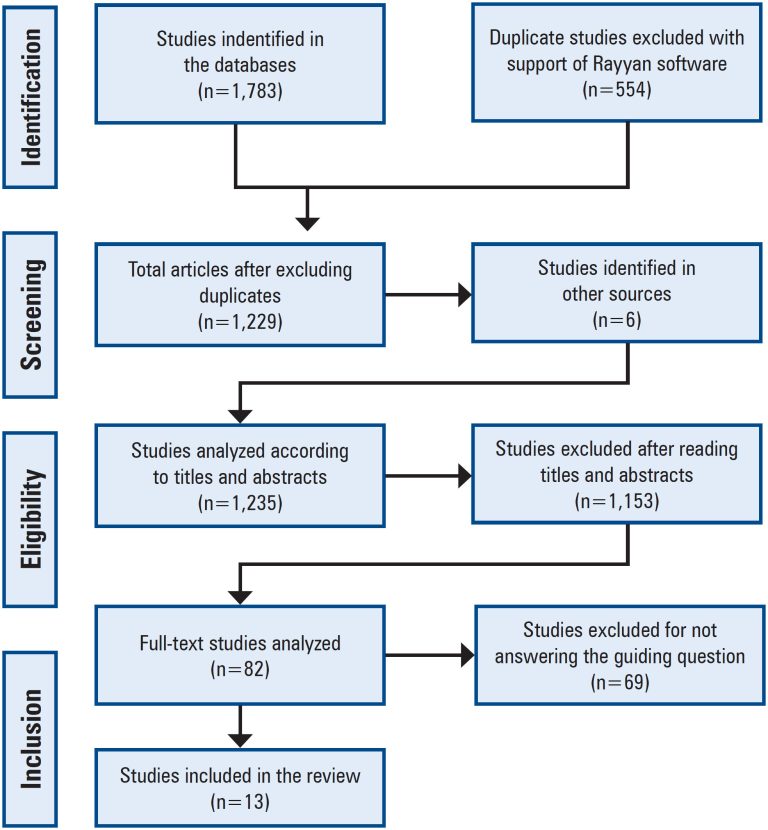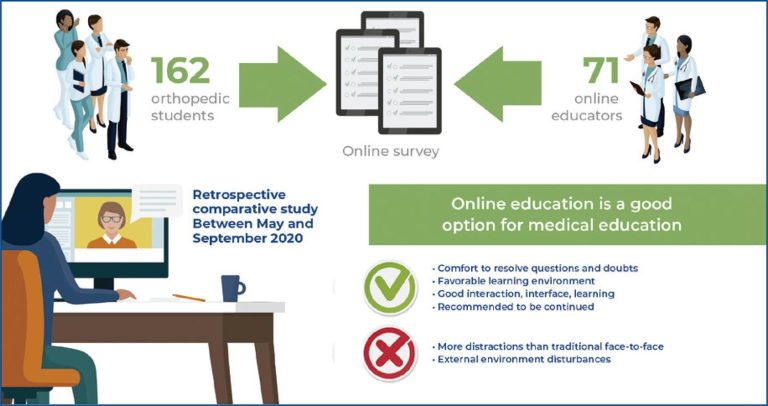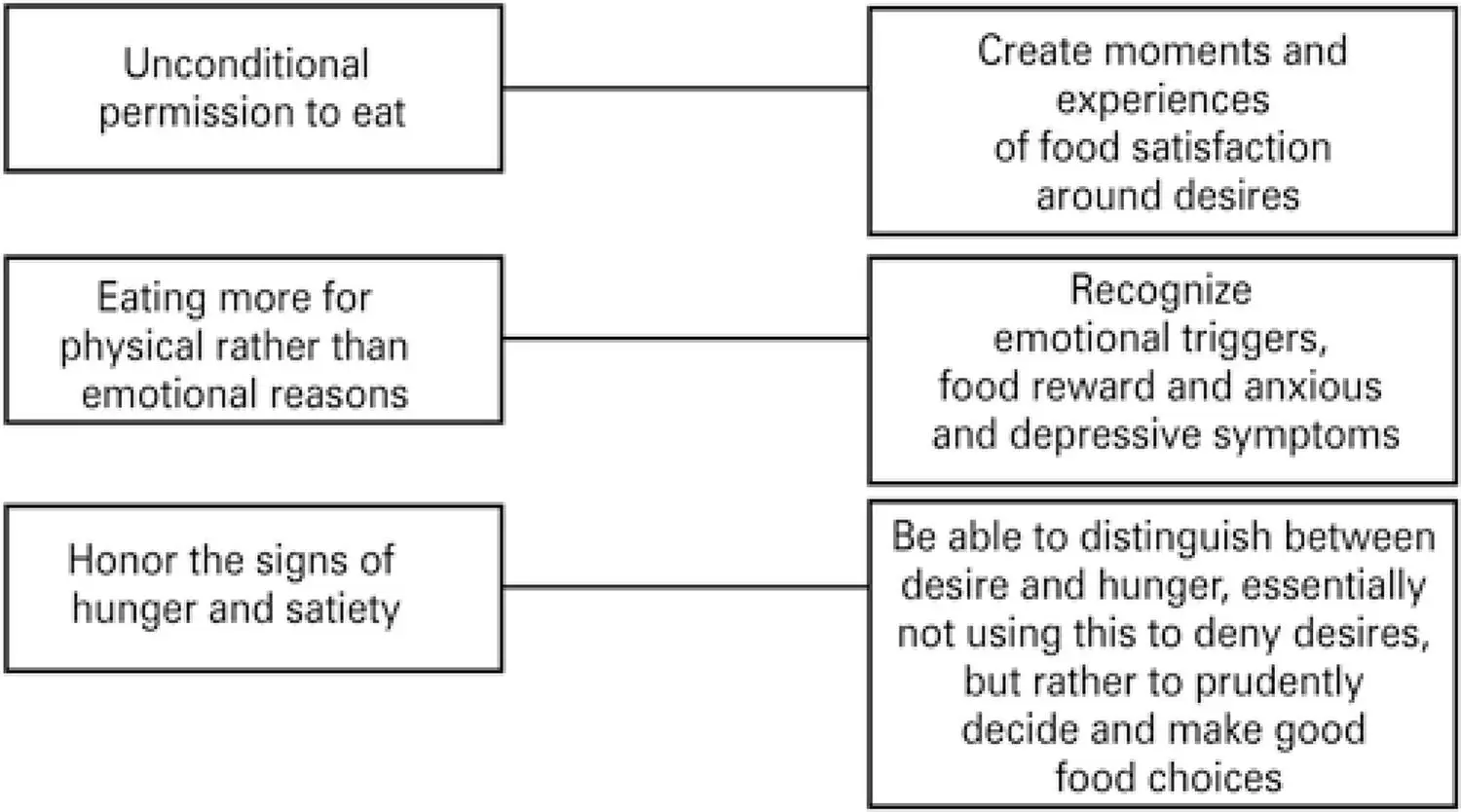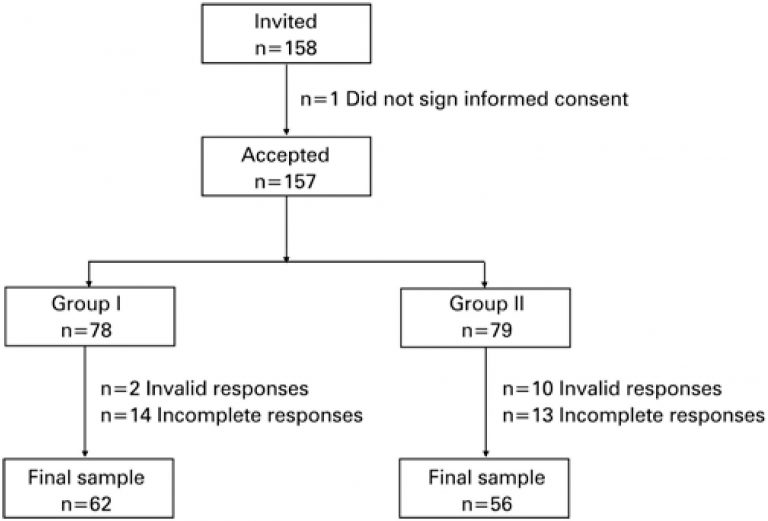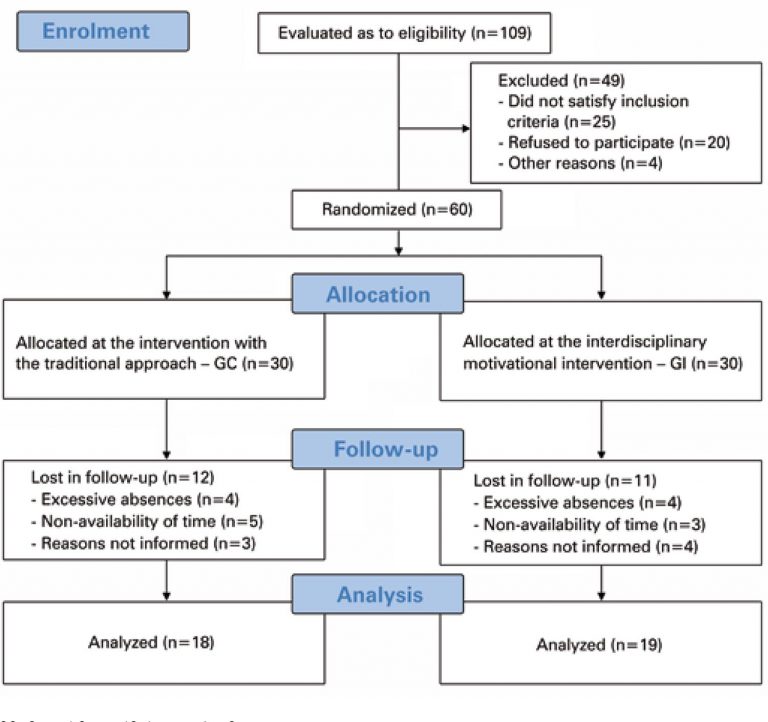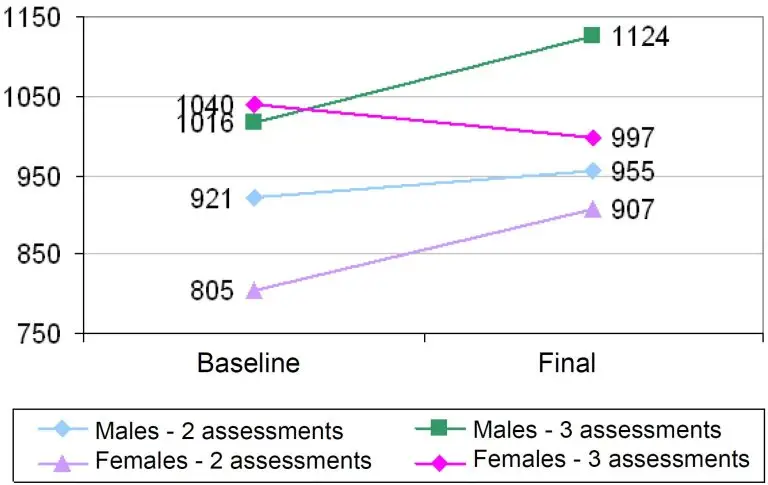11/Apr/2024
Implications of clinical simulation in motivation for learning: scoping review
DOI: 10.31744/einstein_journal/2024RW0792
ABSTRACT Objective: To identify, synthesize, and analyze the scientific knowledge produced regarding the implications of using clinical simulation for undergraduate nursing or medical students’ motivation for learning. Methods: The search for articles was conducted between July 28 and August 3, 2022, on the PubMed/MEDLINE, Scopus, Web of Science, and SciELO databases. The following was used for the search: P – undergraduate students attending Nursing or Medicine courses; C – motivation for learning, and C – skills and clinical simulation laboratory. […]
Keywords: Education, medical; Education, nursing; Learning; Learning health system; Motivation; Simulation training
25/Jul/2023
Changes in the methodology of medical teaching due to the COVID-19 pandemic
DOI: 10.31744/einstein_journal/2023AO0101
Highlights Teaching method preferences of medical students 162 and teachers 71 were evaluated. Both groups showed high satisfaction and a sense of learning in virtual classes. The virtual method resulted in worse retention of attention. The virtual method also showed higher interference from the external environment. ABSTRACT Objective To evaluate the perceptions of students and teachers regarding remote teaching modality in comparison with the traditional face-to-face method. Methods In this observational, retrospective, comparative, single-center study, questionnaires containing three major […]
Keywords: COVID-19; Education, distance; Education, medical; Learning; Motivation; Pandemics; School teachers; Students; Surveys and questionnaires; Teaching
24/Aug/2022
The body asks and the mind judges: the episode of food craving, its triggers and nutritional treatment
einstein (São Paulo). 24/Aug/2022;20:eMD6705.
View Article24/Aug/2022
The body asks and the mind judges: the episode of food craving, its triggers and nutritional treatment
DOI: 10.31744/einstein_journal/2022MD6705
ABSTRACT Food desires are defined as motivations that drive the search for and consumption of food. However, when domains of intensity and urgency are activated, these desires can become intense (i.e. food craving), being then characterized by episodes or cognitive events loaded with affectivity, in which food is associated with obtaining pleasure or relief, which is the only attentional focus. Specificity and urgency mark the differentiation between food desires and cravings. The process of elaboration with vivid images, the retention […]
Keywords: Binge-eating disorder; Craving; Feeding and eating disorders; Feeding behavior; Food preferences; Motivation
23/Jul/2021
Comparison of the printed and online administration of the Behavioral Regulation in Exercise Questionnaire (BREQ-2)
DOI: 10.31744/einstein_journal/2021AO6088
ABSTRACT Objective: To compare the traditional printed form of the Behavioral Regulation in Exercise Questionnaire with a proposed online form in terms of validity, reliability, and applicability. Methods: A crossover design study was conducted with 157 undergraduate students. Half of the sample answered the printed questionnaire first and then answered the online questionnaire 7 days later, while the other half of the sample did the inverse. Cronbach’s alpha was used to analyze the internal consistency of both the online and […]
Keywords: Exercise; Internet; Motivation; Motor activity; Online systems; Surveys and questionnaires
13/May/2020
Effect of an interdisciplinary intervention with motivational approach on exercise capacity in obese adolescents: a randomized controlled clinical trial
einstein (São Paulo). 13/May/2020;18:eAO5268.
View Article13/May/2020
Effect of an interdisciplinary intervention with motivational approach on exercise capacity in obese adolescents: a randomized controlled clinical trial
DOI: 10.31744/einstein_journal/2020AO5268
ABSTRACT Objective To evaluate the effect of an interdisciplinary intervention with a motivational approach on exercise capacity and usual physical activity levels in overweight and obese adolescents. Methods This is a randomized, controlled clinical trial with single blinding of subjects. Adolescents aged 15 to 18 years with overweight and obesity (body mass index ≥ 85 percentile) were included. The adolescents were randomized into two groups: interdisciplinary intervention or control − traditional approach aiming at lifestyle modifications. The initial evaluations were […]
Keywords: Adolescent; Exercise; Motivation; Motivational interviewing; Obesity; Overweight
01/Jan/2010
The impact of motivational interventions for increasing physical activity
DOI: 10.1590/S1679-45082010AO1442
ABSTRACT Objective: To assess whether incentives for practicing regular physical activities in fact help raising the frequency of exercising. Methods: Male and female subjects undergoing two to three assessments in the Check-Up Unit of Hospital Israelita Albert Einstein (HIAE) were evaluated by noting any increase in levels of physical activity, improvements in mean metabolic unit numbers, and the sensitization index. The International Physical Activity Questionnaire was applied to assess the sample. Results: There were 1,879 subjects − 1,559 (83%) males […]
Keywords: Energy metabolism; Exercise; Exercise movement techniques; Health Promotion; International Cooperation; Intervention studies; Metabolic equivalent; Motivation; Motor activity; Preventive medicine/methods; Quality of life; Questionnaires


